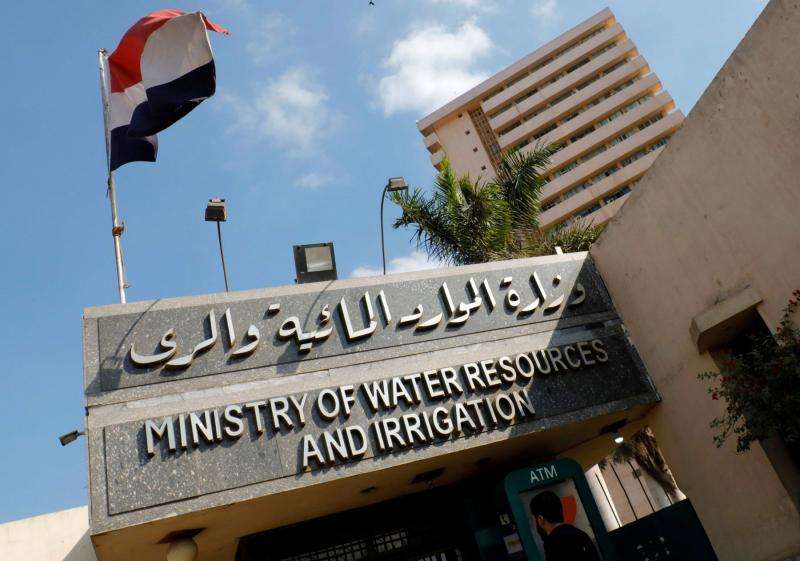While Egypt, Sudan and Ethiopia have resumed negotiations over the Grand Ethiopian Renaissance Dam (GERD), the spokesperson for the Egyptian Ministry of Water Resources and Irrigation said that he is not optimistic about reaching any breakthrough or progress in the ongoing negotiations due to the continued Ethiopian intransigence.
The Egyptian official told reporters on Saturday that “The Ethiopian intransigence was evident during the meetings that are currently taking place between the Ministers of Water Resources in Egypt, Sudan and Ethiopia.”
The spokesman stated that while Egypt showed more flexibility during the talks and accepted a compromise paper prepared by the brotherly Republic of Sudan, which would be a basis for negotiations between the three countries, Ethiopia presented, during the ministerial meeting held on Thursday, a disturbing proposal that includes its vision of the rules for filling and operating the Renaissance Dam.
“The Ethiopian proposal breaches all technical and legal rules,” he stressed.
He noted that the Ethiopian proposal, which was rejected by both Egypt and Sudan, reaffirms that Ethiopia lacks the political will to reach a fair agreement on the Renaissance Dam and reveals its intention to exploit the transboundary water resources without any controls and without paying attention to the rights and interests of the downstream countries.
The Irrigation Ministry spokesman pointed out that the Ethiopian proposal includes many flaws as follows:
First: At a time when Egypt and Sudan are seeking to reach a binding legal document that regulates the filling and operation of the Renaissance Dam and preserves the rights of the three countries, Ethiopia hopes that a non-binding paper will be signed according to which the downstream country will give up their water rights and recognize Ethiopia's unconditional right to use unilaterally the water of the Blue Nile, with fullness and operation of the Renaissance Dam according to its inpidual vision.
[caption id="attachment_131207" align="aligncenter" width="800"] The Egyptian Ministry of Water Resources and Irrigation Headquarters[/caption]
The Egyptian Ministry of Water Resources and Irrigation Headquarters[/caption]
Second: The Ethiopian proposal aims to waste all the agreements and understandings reached by the three countries during the negotiations spanning nearly a full decade, including the agreements reached in the recent rounds of negotiations with the participation of the United States and the World Bank.
Third: The Ethiopian paper does not provide any guarantees that secure the downstream country during periods of prolonged drought and does not provide any protection for them from the effects and grave damages that may result from filling and operating the Renaissance Dam.
Fourth: The Ethiopian paper stipulates Ethiopia's absolute right to change and amend the rules for filling and operating the Renaissance Dam unilaterally in light of the rates of electricity generation from the dam and to meet its water needs, without even paying attention to the interests of the downstream countries or taking them into consideration.
Ethiopia Seeks Unilateral Interests of Renaissance Dam
Moreover, Ethiopian paper is a clear attempt to impose the fait accompli on the two downstream countries, according to the spokesman.
He also made it clear that the Ethiopian position is based on forcing Egypt and Sudan to either sign a document that makes them surrender to the will of Ethiopia, or to accept that Ethiopia takes unilateral measures such as starting to fill in the Renaissance Dam without reaching an agreement with the two downstream countries.
Finally, the spokesperson told the reporters that the Ethiopian stance is unfortunate and unacceptable and does not reflect the spirit of cooperation and good neighborliness that should prevail in relations between the African brothers and the countries that share international water resources.
On Monday, the Sudanese Ministry of Irrigation announced that a tripartite meeting of the Ministers of Irrigation and Water Resources in Sudan, Ethiopia and Egypt would be held via video on Tuesday in order to discuss differences over the GERD.
Moreover, the statement stated that during the previous rounds of negotiation which spanned from 2013 to 2020, the three countries managed to reach consensus on most of the issues on the negotiating table, while a few of the outstanding issues that the three parties hope to agree on.












